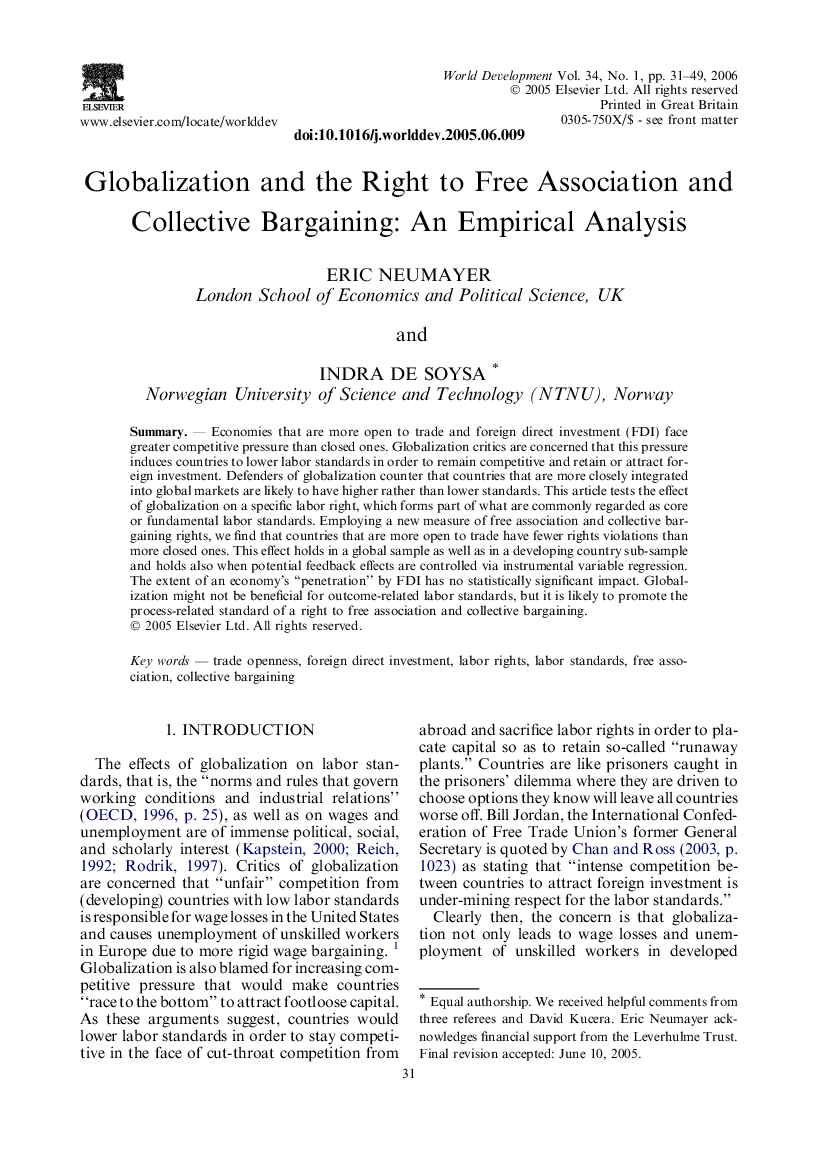| Article ID | Journal | Published Year | Pages | File Type |
|---|---|---|---|---|
| 991844 | World Development | 2006 | 19 Pages |
SummaryEconomies that are more open to trade and foreign direct investment (FDI) face greater competitive pressure than closed ones. Globalization critics are concerned that this pressure induces countries to lower labor standards in order to remain competitive and retain or attract foreign investment. Defenders of globalization counter that countries that are more closely integrated into global markets are likely to have higher rather than lower standards. This article tests the effect of globalization on a specific labor right, which forms part of what are commonly regarded as core or fundamental labor standards. Employing a new measure of free association and collective bargaining rights, we find that countries that are more open to trade have fewer rights violations than more closed ones. This effect holds in a global sample as well as in a developing country sub-sample and holds also when potential feedback effects are controlled via instrumental variable regression. The extent of an economy’s “penetration” by FDI has no statistically significant impact. Globalization might not be beneficial for outcome-related labor standards, but it is likely to promote the process-related standard of a right to free association and collective bargaining.
